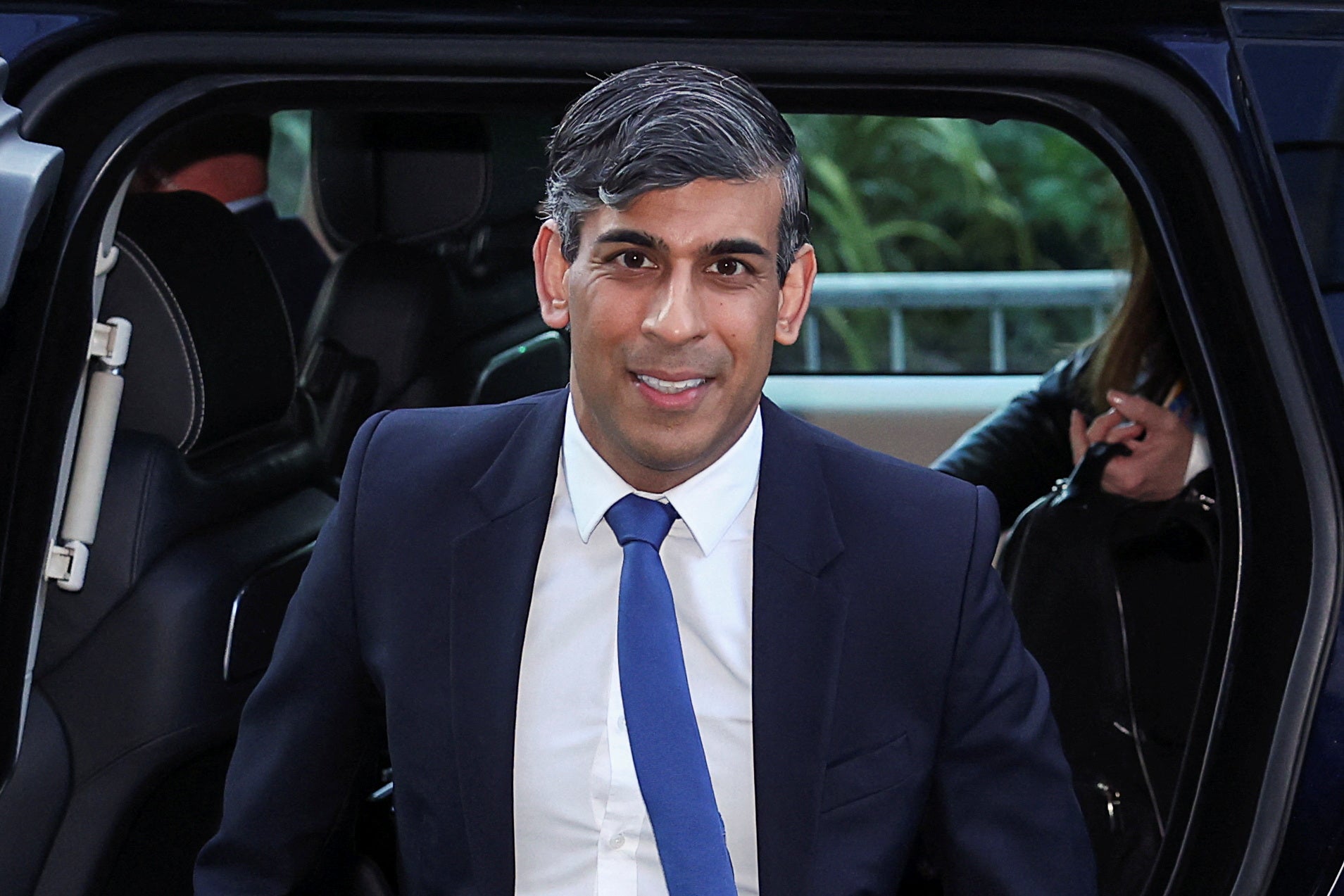Rishi Sunak’s tax bombshell has blown up in his face
The Treasury’s rebuke over the prime minister’s key claim during the first TV debate is a body blow for the Conservatives’ already dwindling election hopes, says Andrew Grice


After last night’s TV debate, relieved Conservatives claimed Rishi Sunak had detonated another “Labour tax bombshell” with his repeated claim that the party’s £38.5bn of unfunded spending commitments would cost every working household £2,000.
But today the bomb has blown up in the Tories’ faces.
In a highly unusual intervention, the Treasury’s most senior civil servant has distanced it from Sunak’s claim the figure was produced by “independent Treasury officials”. James Bowler told Labour in a letter that the Tories’ dossier on Labour’s alleged black hole “includes costs beyond those provided by the civil service and published online by HM Treasury” which “should not be presented as having been produced by the civil service”. He has reminded ministers and special advisers of this.
Asking politically neutral Treasury officials to estimate the cost of various policies – sometimes without telling them they are those of the opposition – is an old trick Labour also deployed when it was in power. In his desperation to land a blow on Keir Starmer, Sunak strayed over a line by suggesting the figures were approved by independent officials. Crucially, the policies to be costed were selected by Tory special advisers.
Labour claims there are 11 mistakes in the Tories’ dodgy dossier. For example, it assumes that Labour would install a youth mental health worker in every A&E suite and a mentor in every pupil referral unit. Labour’s policy is a pilot of both approaches.
The Treasury’s intervention is a body blow to Sunak, just when his performance appeared to have raised the Tories’ flagging morale after their poor start to the election. Instead, Bowler’s move hands Labour some precious ammunition. The rebuke for Sunak will make it harder for him to suggest he has detoxified the Tory brand. So much for the “integrity, professionalism and accountability at every level” he promised on becoming prime minister.
Now he risks looking no different to his predecessors, which bolsters Starmer’s attack on 14 years of Tory misrule. Boris Johnson’s downfall was sparked by Simon McDonald, the Foreign Office’s former permanent secretary, revealing Johnson had lied about his knowledge of a previous investigation into the conduct of former minister Chris Pincher. Nadhim Zahawi, a former chancellor, was sacked as Tory chair after The Independent revealed an HMRC investigation into his tax affairs.
Sunak’s tax attack captured today’s front-page headlines and it might plant some seeds of doubt about Labour among the wavering Tory voters Starmer wants to win. Worryingly for Labour, YouGov’s snap poll found that 53 per cent of people thought Sunak did better on tax, while 32 per cent believed Starmer did. (Overall, YouGov found Sunak “won” the debate by 51 per cent to 49 per cent – in effect, a draw – but today Savanta reported that Starmer “won”, by 44 per cent to 39 per cent).
The tax attack was crude, but on the night it worked, partly because Starmer was slow to rebut it before eventually calling it “absolute garbage”. Ministers point to his initial hesitation as evidence their claim is true.
Starmer should have known it was coming: the claim that every working family faces a £2,000 tax rise under Labour was made by Jeremy Hunt, the chancellor, when he published the dossier last month.
Although neither main party wants to talk about it, taxes will rise whoever wins the election because the freeze in allowances and thresholds introduced by Sunak as chancellor – the biggest stealth tax in history – will continue until 2028. By then, it will raise £33bn a year, the equivalent of putting up the basic rate of income tax by 5p in the pound.
That’s just for starters. Labour, and probably the Tories, would surely have to increase taxes further just to maintain public services, let alone improve them. Hunt’s spending plans, implying £20bn of cuts, are unrealistic, given the huge pressures on health, social care, defence, local government, universities, prisons and the courts. Neither party is being honest about how they would square the circle.
After last night’s ITV debate, some Tories hoped they had found an equivalent of their 1992 “Labour’s tax bombshell” campaign which contributed to John Major’s surprise election victory. But they are clutching at straws and will be disappointed. In 1992, Labour was openly committed to higher taxes for those earning more than £30,000 a year. Today, it pledges it will not raise income tax, national insurance or VAT.
Sunak’s attack might have been a game-changer if the Tories hadn’t raised taxes to their highest level for 70 years. But they have and his own hands are far from clean. Polls suggest the Tories, not Labour, are now the party of high taxation, and Labour is more trusted on the economy.
Some of the mud thrown by Sunak will stick – but it won’t be enough to save him from defeat. And after the Treasury’s rebuke, some of it will now boomerang and stick to him.






Join our commenting forum
Join thought-provoking conversations, follow other Independent readers and see their replies
Comments